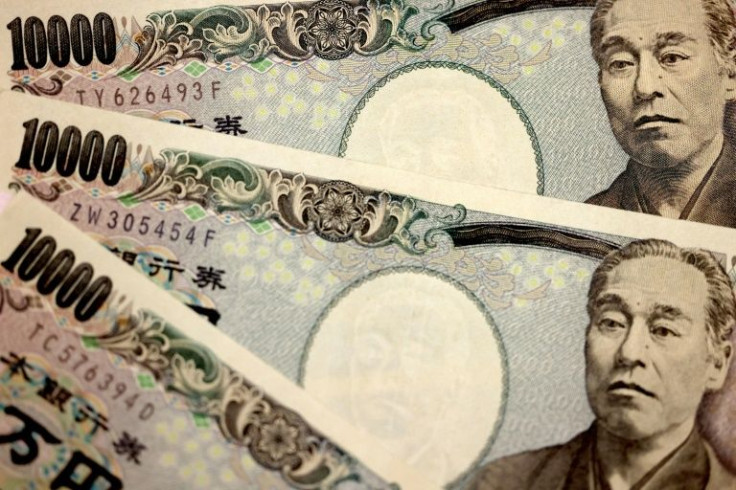Yen Drops To 20-Year Low Against Dollar
The yen hit its lowest level against the dollar in two decades on Wednesday, extending recent falls as the gap widens between Japan's ultra-loose monetary policy and US tightening.
Despite being traditionally considered a safe-haven currency, uncertainty fuelled by the war in Ukraine has not caused the yen to strengthen.
Instead, moves by the US Federal Reserve towards a more aggressive policy and the shock of rising oil prices in Japan -- a major importer of fossil fuels -- have pushed the currency lower, analysts say.
One dollar bought 126 yen on Wednesday afternoon, the lowest rate since 2002.
"The Japanese yen has been one of the weakest currencies anywhere in the world this year," Dutch banking group ING said in a recent commentary.
"Driving the rally has been the perfect storm of a hawkish Federal Reserve, a dovish Bank of Japan (BoJ), and Japan's negative terms of trade shock as a major fossil fuel importer."
Government spokesman Hirokazu Matsuno said "the stability of exchange rates is important and we see rapid currency moves as undesirable".
"We will monitor trends in the foreign currency market and the impact on the Japanese economy with a sense of urgency," he added.

The yen had already lost 10 percent of its value against the dollar in 2021 after four years of steady strengthening.
The US central bank has embarked on an aggressive tightening path, pushing up American treasury yields which have strengthened the dollar against the yen.
But its moves stand in contrast to the Bank of Japan's ultra-loose monetary policy, which will be maintained for now, bank governor Haruhiko Kuroda said earlier Wednesday.
"Given the economy and price situation, the Bank of Japan will seek to realise its two-percent inflation target... by resiliently continuing its current powerful monetary easing," he said.
Swiss Bank UBS said a weaker yen would likely hit Japanese households' purchasing power, and domestic-oriented small businesses who will face higher import costs.
"The government is offering fiscal supports and most likely will expand the supports. We think the (yen) purchase intervention is possible if the pace of depreciation is regarded as too fast," it said in a note.
Tohru Sasaki, head of Japan Market Research at JPMorgan Chase Bank, told AFP that the Bank of Japan "has to do something to slow the pace of the yen's depreciation".
"The Japanese government can sell foreign reserve (USD) to intervene, but it is politically difficult," he said, adding that it would be "strange" if the finance ministry did so while the Bank of Japan keeps its current easing policies.
© Copyright AFP {{Year}}. All rights reserved.





















